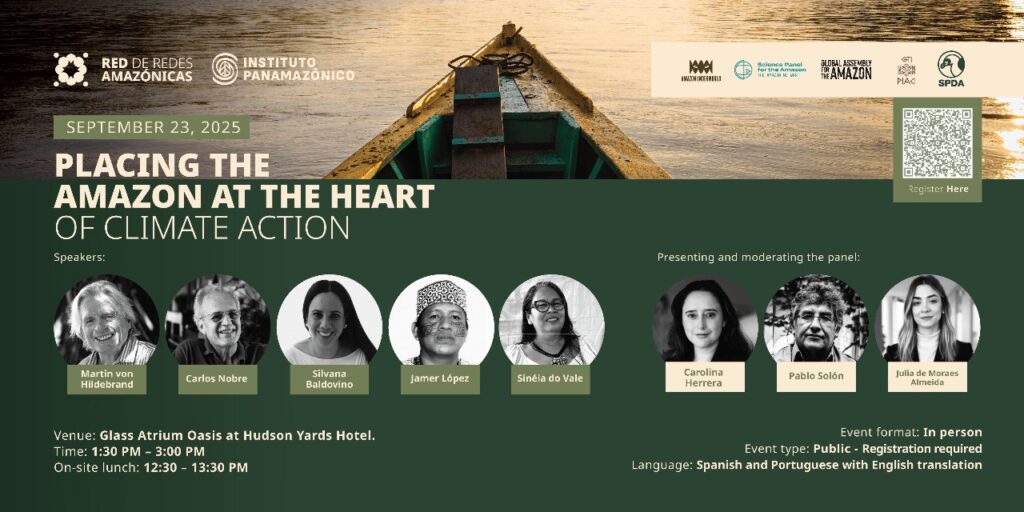The Amazon Network of Networks, of which the Listen to the Amazon Alliance and the Interreligious Initiative for Tropical Forests are members, is developing an advocacy strategy for COP30, which will be held next November in Belém do Pará, Brazil.
The main objective of these actions is to place the Amazon at the center of global climate decisions, while guaranteeing its integrity and the well-being of its peoples, through the action of the Amazonian countries as a regional bloc.
As part of this strategy, on September 23 the Amazon Networks Network held the panel “Putting the Amazon at the heart of climate action”, within the framework of World Climate Week in New York. This dialogue brought together important personalities such as Martín von Hildebrand, Secretary General of ACTO, and Carlos Nobre, renowned Brazilian scientist, to discuss the implications and real impact of making this region the central axis of global climate actions.
Additionally, in alliance with the COP30 Presidency and in conjunction with indigenous peoples and Amazonian communities, the Network of Networks will hold an event within the framework of the PreCOP and another during the Climate Change Summit. In both, he will present the Initiative and the calls to action embodied in the Pan-Amazonian Climate Pact:
- Adopt ecosystemic, social, and cultural connectivity as a regional strategy to promote the implementation of policies for the conservation, restoration, and sustainable use of Amazonian ecosystems, such as those for mitigation and adaptation to climate change.
- The recognition of the fundamental role of defenders of the Amazon in policies and measures for adaptation and mitigation to climate change.
- The recognition of Amazonian production models that guarantee the integrity of ecosystems and ensure financing resources for their strengthening.
The advocacy strategy for COP30 implemented by the Amazon Network of Networks articulates strategic communication actions and the creation of spaces for social participation that promote the implementation of the Pan-Amazonian Climate Pact; to the promotion of a joint agenda of countries with specific commitments for the Amazon in their Nationally Determined Contributions (NDCs) and the creation of an intercultural pact with indigenous peoples and communities, which recognizes them as leading actors in climate decisions.


